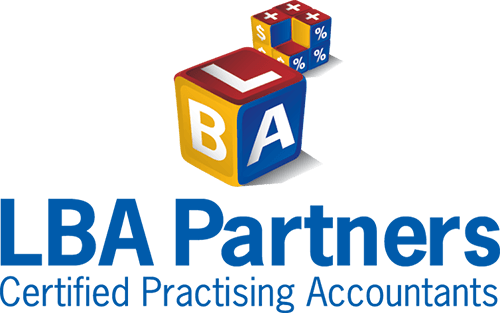P r a c t i c e U p d a t e
March 2011
The Commissioner of Taxation has announced additional time for tax-related lodgments and associated payments for individuals and businesses affected by the recent natural disasters in Queensland, New South Wales, Victoria and Western Australia.
Those in the affected postcodes will automatically have the following lodgment and payment dates deferred:
- lodgment and payment of the December monthly activity statement from the original due date of 21 January 2011 to 21 March 2011;
- lodgment and payment of the January monthly activity statement from the original due date of 21 February 2011 to 21 March 2011;
- lodgment and payment of December quarterly activity statements from the original due date of 28 February 2011 to 28 March 2011;
- lodgment and payment obligations of income tax due in February 2011 for a period of one month; and
- lodgment of superannuation guarantee charge (SKAG) statements for the quarter ending 31 December 2010 from 28 February 2011 to 28 March 2011.
lly reduce the FBT payable.
Declaration of Disasters
The Treasurer has declared that the following are disasters for the purposes of establishing Australian disaster relief funds that can receive tax deductible donations:
- the Victorian floods, effective from 15 January 2011; and
- the New South Wales floods, effective from 10 January 2011.
A similar declaration has been made by the Queensland Government in relation to floods in that State.
Editor: New assistance measures will also be provided to help communities and businesses devastated by Cyclone Yasi in Far North Queensland, including concessional loans, grants, and wage assistance for employers.
Flood Levy proposed
The Government intends to introduce a temporary flood levy in the 2011/12 financial year, to assist with part of the costs of rebuilding infrastructure following the recent floods.
It is proposed that the levy will not be paid by those affected by the floods or by lower income earners, and will apply only in the 2011/12 financial year.
The rate of the levy will depend on a taxpayer's taxable income (TI) as follows:
- anyone with a TI under $50,000 will not pay the levy;
- those with a TI between $50,000 and $100,000 will pay 0.5 per cent of TI in excess of $50,000; and
- those with a TI over $100,000 will pay 0.5 per cent of TI in excess of $50,000 and 1% of TI in excess of $100,000.
Examples
An individual taxpayer on average annual adult full-time total earnings and TI of $68,125 will pay an extra $90.63 in tax (i.e., ($68,125 – $50,000) x 0.5%).
An individual taxpayer with TI of $120,000 in 2011/12 will pay an extra $450 in tax (i.e., ($120,000 – $100,000) x 1.0%) + ($100,000 – $50,000) x 0.5%)).
ATO targeting GST compliance
The ATO received specific funding in the 2010 Budget to look closely at GST compliance, and will be implementing a dedicated program over the next four years to deal with some specific compliance issues.
They will focus on:
- the timely lodgment of activity statements;
- verifying GST refund claims;
- identifying and dealing with those that deliberately avoid GST; and
- addressing aging GST debts and those who deliberately use debt as a way of avoiding their tax obligations.
They say that they are continuing to expand their ability to identify non-lodgers and detect businesses that overclaim entitlements, deliberately under-report or omit income and use cash transactions to hide income.
They will do this in part by:
- comparing businesses to small business benchmarks for their industry to select businesses for audit – businesses that do not report within their range may not be recording or paying tax on all their transactions, especially cash transactions;
- using benchmarks to calculate default assessments where a business provides insufficient or unreliable information or has not met their lodgment requirements; and
- using new risk filters and risk models to detect incorrect or fraudulent refund claims on activity statement credits.
50% Tax Break deduction under new Green Buildings scheme
The Assistant Treasurer has released a public consultation paper regarding tax breaks for redevelopments that will substantially improve the energy efficiency of existing buildings.
From 1 July 2011, the Tax Breaks for Green Buildings scheme will offer businesses that invest in eligible assets or capital works to improve the energy efficiency of their existing buildings – from 2 stars or lower to 4 stars or higher – the ability to apply for a one-off bonus tax deduction of 50% of the cost of these improvements.
Editor: For more information on the eligibility criteria and assessment and certification processes, please refer to the Tax Breaks for Green Buildings information page at www.climatechange.gov.au.
ATO looks at limited by guarantee loan arrangement
The Tax Office has issued a taxpayer alert warning people of arrangements involving loans to members of a company limited by guarantee.
Under these arrangements, a company limited by guarantee is established to receive income distributions from a trust and then lend that money to directors, members or associates of that company or related parties.
"The use of a company limited by guarantee makes no commercial sense, aside from the tax advantage sought from these arrangements. These types of companies cannot distribute profits to members or utilise any franking credits obtained," Michael D'Ascenzo, the Tax Commissioner, said.
He said the ATO believes that people are utilising these arrangements to get income from their trusts without having to pay the required amount of tax and is warning anyone who has participated in these arrangements to come forward prior to 30 April 2011 and before they are contacted by the ATO.
If they do, they will be entitled to a reduction in any tax penalties.
Please Note: Many of the comments in this publication are general in nature and anyone intending to apply the information to practical circumstances should seek professional advice to independently verify their interpretation and the information's applicability to their particular circumstances.
Management Consulting
We have the know-how and experience to offer advice that helps you run your business more effectively.
Self-Managed Superannuation Funds
At LBA Partners we provide the professional advice you need to manage your own fund and greatly simplify the process for you.



